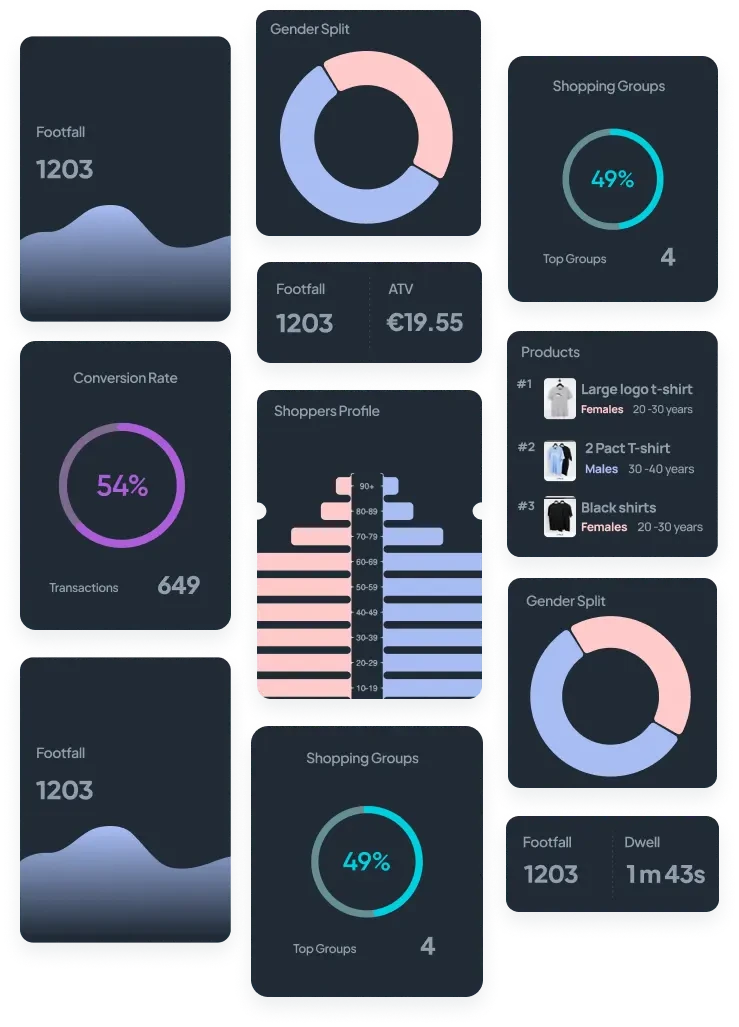Will Black Friday Become Black November?
Keith Monaghan
November 26, 2024
Several news publications like the Irish Times and Irish Examiner have been commenting on lower interest in Black Friday this year, citing mistrust in the products themselves and uncertainty over whether the deals are really all that beneficial. The elongation of Black Friday could lead shoppers to think, why buy now when the deal will probably still be there in a week or two anyway?
Brands like Primark, Home Bargains, Mr. Price, and other famously low-cost or discount retailers, choose to opt out of Black Friday, highlighting that their shoppers will get amazing deals all year round. Next emphasises that it is their January Sale (Or December 26th onwards sale) that is their big sale event and that Black Friday just muddles up that set-in-stone process.
Many retailers choose January 31st as their end of fiscal year, meaning that there are a lot of reasons to have a sale in this period. Shoppers may have extra cash to spend, as they may have been gifted it over Christmas, retailers have leftover stock from Christmas that they wish to clear, and throw into the mix that a lot of people have time off before they go back to work. Some people may not return to work until January 10th or thereabouts, leading to a perfect storm for retail shopping.
So, why the need for a sale on Black Friday?
The explanations I look through are mostly that it occurred by accident, because there was a particular Friday before Christmas that American retailers noticed had a large spike in sales. The reason being that a lot of out-of-town folk would come into the cities and get their shopping done early. Some would even take extended vacation or sick days around Thanksgiving to get their Christmas shopping out of the way. It had more to do with avoiding the rush of crowds, than taking advantage of discounts. Incredibly ironic, considering how we now picture retail shopping on Black Friday.
In Ireland, our Christmas shopping phenomenon was always around December 8th, when people from across the country were known to flock to Dublin in particular, to get their Christmas shopping done early. It’s now quaint to think that December 8th qualified as early Christmas shopping when Black Friday is set two weeks prior.
It is interesting as well to see that the Black Friday sale begins a week before Black Friday. Maybe over the next years, we’ll see Black Friday begin mid-November. Maybe ten years from now, we’ll just have a pre-Christmas sale that begins on November 1st, making Black Friday an irrelevance.
Large retailers like B&M and TKMaxx have in the past ignored Black Friday but have recently dedicated an entire month to special deals, in order to participate in the shopper frenzy, but in more of an uncommitted-to-the-bit way. Essentially, this could amount to putting up some signs and directing people towards a section of the store that is normally reserved for discounted items anyway.
NBC News detailed Black Friday’s impact in 2024 with Zoe Malin interviewing Barbara Kahn, professor of marketing at the Wharton School of the University School of the University of Pennsylvania.
“Retailers used to compete with one another to see who could open the earliest on Black Friday, and some even welcomed shoppers into stores on Thanksgiving. “Everyone wanted to participate in the rat race to see who could get people to run to their stores first,” says Kahn. This transformed Black Friday into a five-day shopping weekend beginning on Thanksgiving and ending on Cyber Monday. Now, because so much shopping happens online during that period, experts named it the Cyber Five. But as these five days expanded into a week and then multiple weeks, experts dubbed all of November “Black November.”
As mentioned at the start of the article, some retailers choose not to participate at all in Black Friday, as from the outside, it could be seen as a sale period that is spiralling out of control. We are seeing however, different takes on the Black Friday phenomenon from certain brands.
Many retailers are contributing to “Green Friday”, considered in some ways to be an antithesis to Black Friday. Rituals, for example are running a sale where you can buy their refills for a certain percentage off, to help promote non-wasteful shopping habits. Dille & Kamille, Kilkenny Design, and many others all have their own Green Friday shopping alternatives as a way of attracting in shoppers.
Keela, the Scottish outdoor brand has what it calls “Bright Friday”, where there are some small discounts to stock, but the major offer for the consumer is that 15% of all of their online sales will be donated to the charitable group Cash For Kids, who have an annual Christmas Appeal.
Retail charts are still showing a surge in sales at this time, but the Competition and Consumer Protection Commission noted an overall decrease in sales of about 30% between Black Friday 2022 and 2023. So, if this year sees another drop-off, we could be exiting the golden era of Black Friday and settling into something a bit messier and disparate for all retailers.
Get Started
What Gets Measured, Gets Managed!
VisionR mines data directly from shoppers as they navigate stores, empowering retailers with real-time insights to maximise their decisions & revenues.
